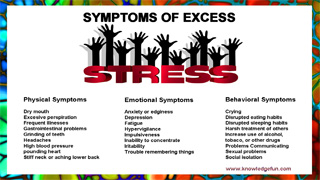Qi Gong
Qi gong or gigong is an ancient Chinese discipline combining the use of gentle physical movements, mental focus, and deep breathing directed toward specific parts of the body. In general, it uses the techniques of breath, movement and exhalations to let go of a stressful concept or situation.
People practice qi gong worldwide for recreation, exercise, relaxation, preventive medicine, self-healing, self-cultivation, alternative medicine, meditation, and training for martial arts. Traditional qi gong theory says that you can focus on a feeling, emotion, concept, goal, or part of the body, and that your qi (pronounced as "chi" and translated as "life energy" or "life force"), goes where your mind sends it. The practice of cultivating and balancing qi is called qigong.
Qi gong is usually performed in repetitions and the exercises are normally performed two times or more a week for 30 minutes at a time. The exercises are considered safe for most people when they’re performed appropriately. It can be tailored to focus on a specific need each time you practice.
Browse Related Info:
- Mind and Body Interventions or Practices
- Traditional Chinese Medicine
- Tai Chi
- Yoga
- Hypnosis
- Meditation
- Acupuncture
- Relaxation Techniques
- Chiropractic Manipulation
- Osteopathic Manipulation
- CAM Natural Products
- Herbal Remedies
- Wellness and Well-Being
- Health Pages
- Testing Treatments

Did You Know?
Yoga and two practices of Chinese origin -- tai chi and qi gong -- are sometimes called “meditative movement” practices. All three practices include both meditative elements and physical ones.
Generally, mind-body medicine focuses on:
• The interactions among the brain, the rest of the body, the mind, and behavior.
• The ways in which emotional, mental, social, spiritual, and behavioral factors can directly affect health.
Many people who practice qi gong and tai chi do so to improve one or more aspects of their health and to stay healthy.
Qi gong and tai chi are centuries-old, related mind and body practices.
Tips on How to Select Health Care Practitioner
Selecting a health care practitioner of conventional medicine or complementary and alternative medicine (CAM) is an important decision and can be key to ensuring that you are receiving the best health care.
If you are seeking a complementary and alternative medicine (CAM) practitioner, speak with your primary health care provider(s) regarding the therapy in which you are interested. Ask if they have a recommendation for the type of CAM practitioner you are seeking.
Make a list of health care practitioners and gather information about each before making your first visit. Ask basic questions about their credentials and practice. Where did they receive their training? What licenses or certifications do they have? How much will the treatment cost?
Check with your insurer to see if the cost of therapy will be covered.
After you select a practitioner, make a list of questions to ask at your first visit. You may want to bring a friend or family member who can help you ask questions and note answers.
Come to the first visit prepared to answer questions about your health history, including injuries, surgeries, and major illnesses, as well as prescription medicines, vitamins, and other supplements you may take.
Assess your first visit and decide if the practitioner is right for you. Did you feel comfortable with the practitioner? Could the practitioner answer your questions? Did he respond to you in a way that satisfied you? Does the treatment plan seem reasonable and acceptable to you?





